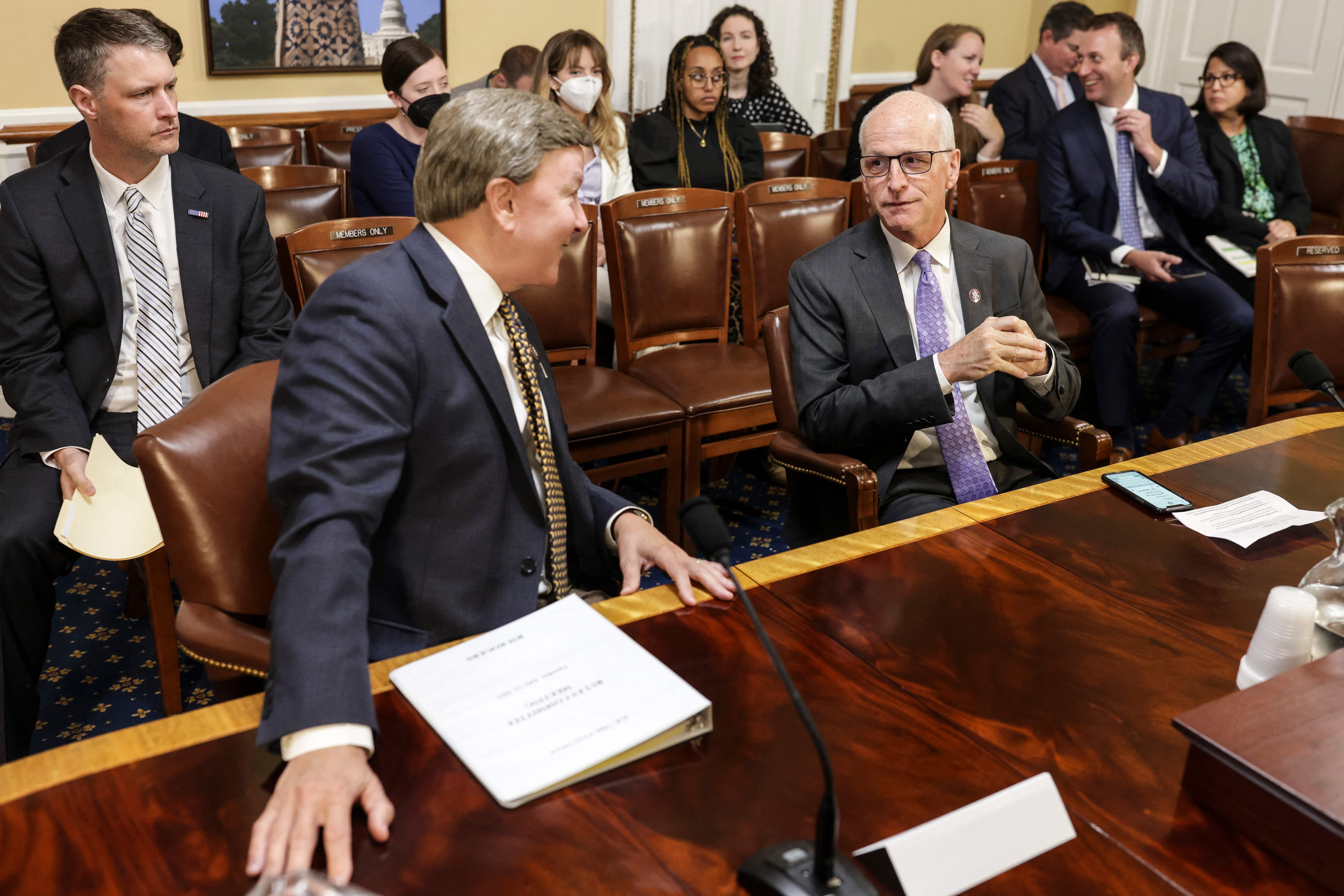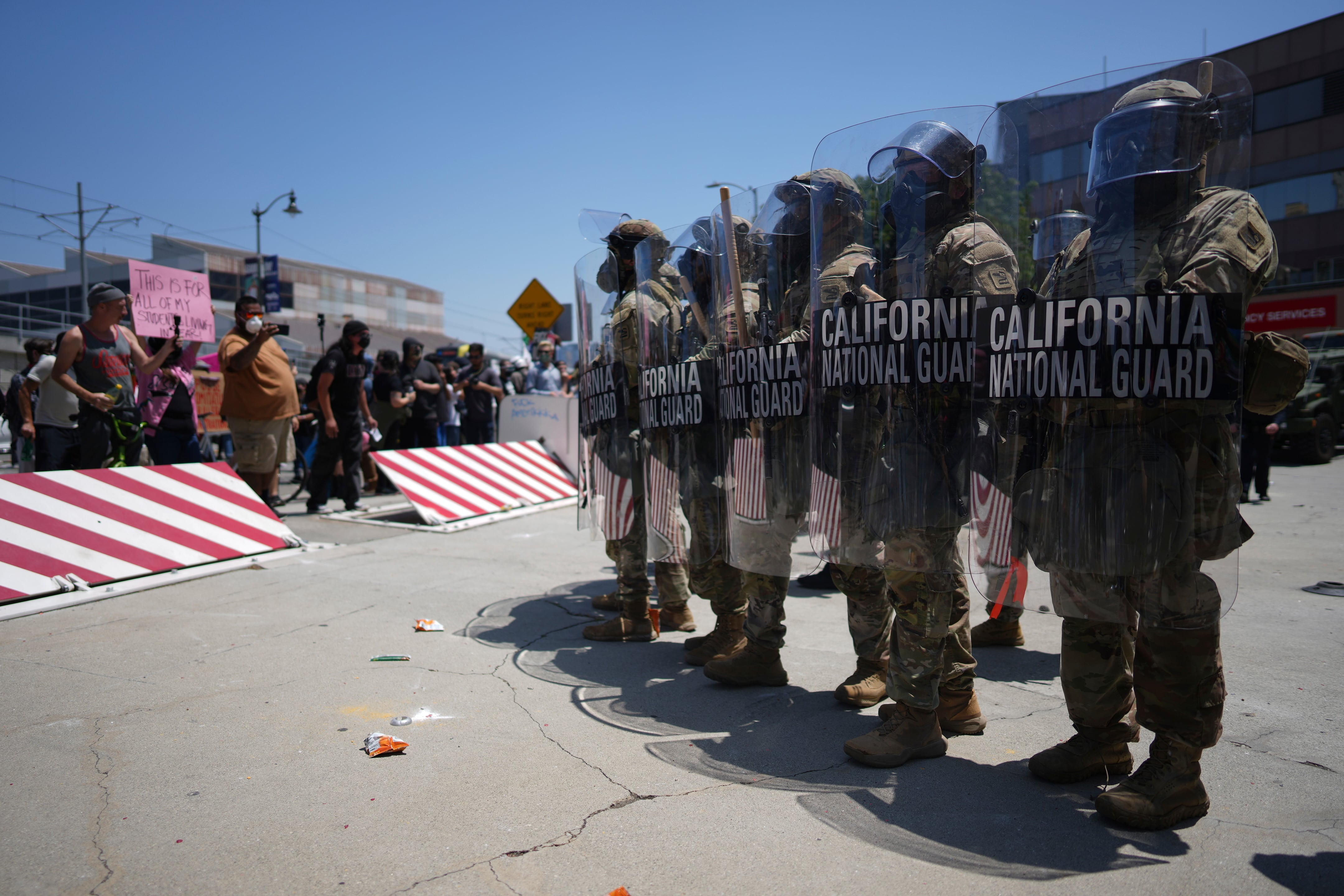More than three-quarters of troops surveyed in a new Military Times Poll of active-duty personnel think the ongoing coronavirus pandemic has damaged military readiness, and about one-third said the military response has already taken a personal toll on their families.
About half of troops polled believe that military leaders are taking the right steps to respond to the fast-spreading illness, but another 43 percent disagree with their approach so far.
That split opinion on leadership doesn’t extend to the recent official travel ban for troops and families, however. More than 80 percent support the severe travel restrictions that have banned almost all domestic and international movement.
The poll surveyed 1,507 active-duty Military Times subscribers in partnership with the Institute for Veterans and Military Families (IVMF) at Syracuse University. Responses were collected online between March 26 and 31, after new travel restrictions for military personnel were put in place and some state quarantine restrictions were enacted.
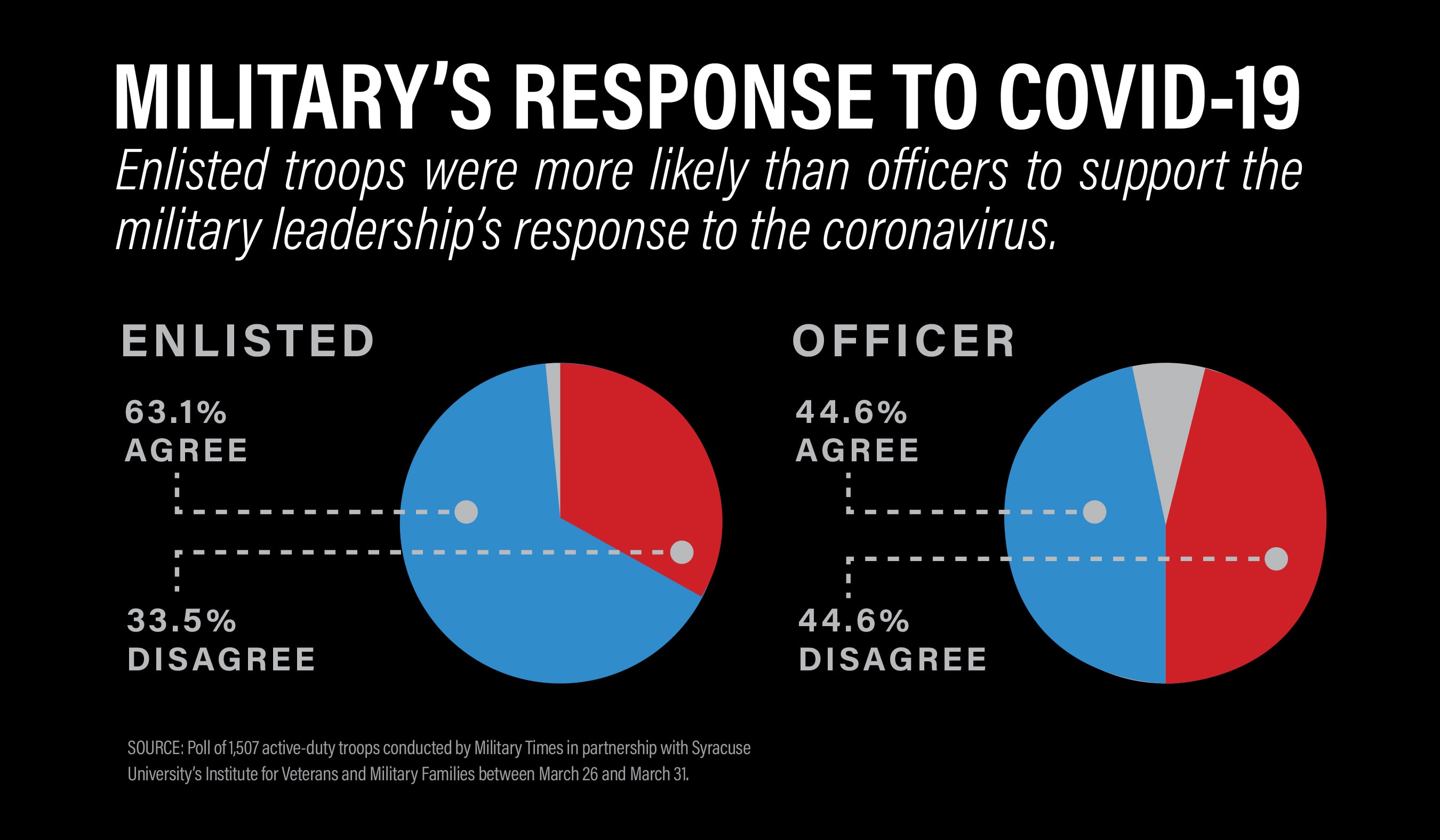
As of April 6, more than 1,400 service members had tested positive for the coronavirus, according to Defense Department reports. More than 2,500 patients in the Veterans Health Administration have also contracted the illness, and more than 100 died from it.
About 19 percent of troops surveyed said the coronavirus outbreak has greatly diminished military readiness and the services’ ability to respond to traditional national security threats.
Missions around the world have been impacted by the virus. New deployments to Afghanistan are on hold, a Navy aircraft carrier has been sidelined due to a COVID-19 outbreak, the Marine Corps suspended recruit training at Parris Island and many local training missions have been canceled.
And that erosion of the armed forces’ strength is likely to linger for a while.
About 37 percent of troops who responded said they expect their units won’t return to normal operations and readiness for at least six months after current quarantine restrictions are lifted. About 5 percent said they expect it to take more than a year.
Confidence in leadership
In recent weeks, Pentagon officials have announced a host of social distancing requirements and new travel restrictions on all personnel. On Sunday, Defense Secretary Mark Esper unveiled plans for all personnel to wear face coverings while in public areas on military bases.
Those kinds of moves so far drew more support than criticism from troops in the survey. About 51 percent said that leadership and commanders have taken the right steps to respond to the public health threat. About 43 percent said they disagree, half of that group strongly.
Enlisted personnel who participated in the survey were more supportive of those leadership moves than officers. Nearly two-thirds of the enlisted troops (63 percent) agreed that commanders are taking the right steps.
RELATED
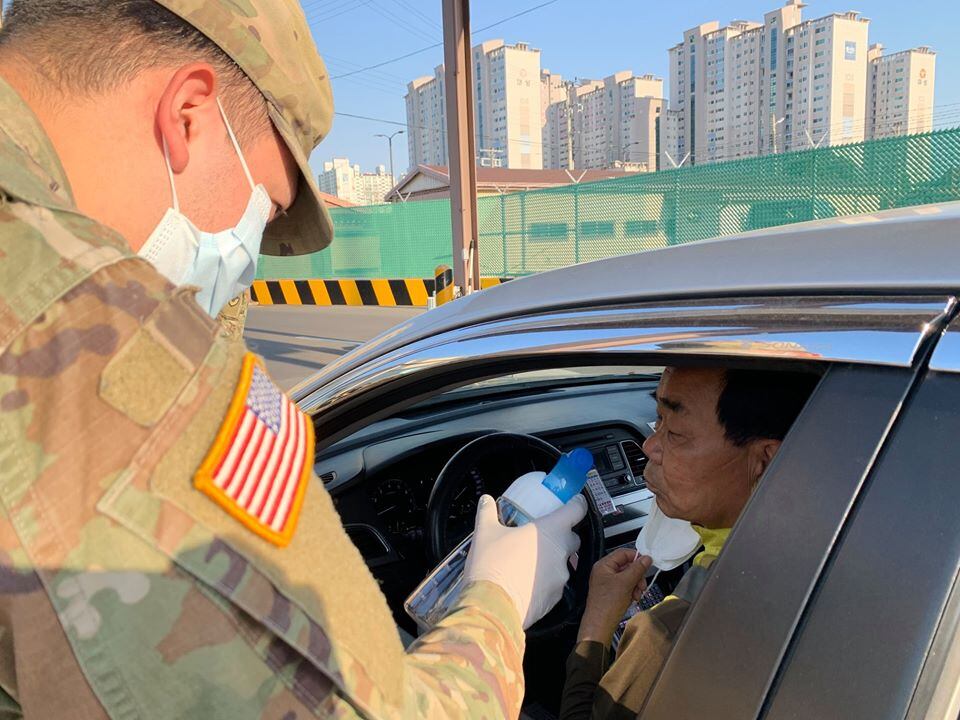
Officers were evenly split on those moves (47 percent agree, 47 percent disagree).
One of the most common complaints aired by servicemembers involved commanders’ decisions about which personnel should be deemed “essential” and continue to report to work as normal despite the quarantine recommendations.
“My ship has pretended nothing is happening, and made everyone ‘essential’ to support yard workers who have had multiple confirmed cases of [coronavirus],” wrote one sailor in part of the survey.
“Even being a stockboy at a grocery store is essential now,” wrote another service member, who complained that many jobs that aren’t actively involved in coronavirus response are still required to report in.
“Right now is the time to shelter, not to be out there doing a training mission just so the pipeline doesn’t dry up.”
RELATED
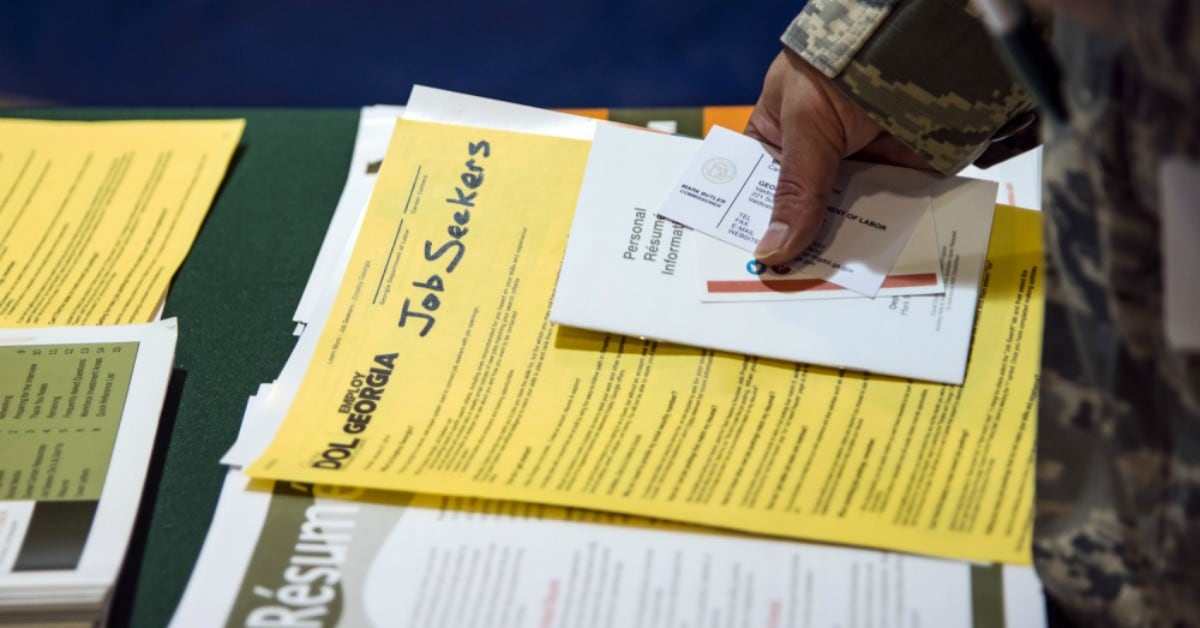
In the survey, troops had more confidence that their peers were taking the coronavirus threat seriously compared to commanders.
Almost 59 percent of those surveyed said their fellow service members are taking the right steps. More than 71 percent of officers voiced that opinion.
Individuals in the survey had more faith in the military’s response to the public health threat (51 percent moderate or strong confidence) than that of the White House (32 percent), the Department of Veterans Affairs (24 percent) or Congress (13 percent).
Personal impact
Roughly 81 percent of troops surveyed said they thought the travel restrictions put in place by military leaders last month were appropriate, but many also reported significant personal impact from that decision.
One third of all survey participants said they have missed a major life event because of the travel limits. One family lost about $8,000 on a planned trip to Walt Disney World in Florida. Dozens of respondents said they’ll miss weddings, family reunions, and long-planned birthday celebrations.
One soldier in South Korea said he was scheduled to transfer out in early April but “now it looks like the earliest I can leave will be July. My wife is due to give birth in early July. Haven't missed the birth yet, but it looks like a strong possibility.”
“I have family in hospice care that may pass away soon,” wrote another service member who cannot visit relatives because of the travel restrictions. “And I feel I will miss the funeral due this outbreak.”
Nearly one-quarter of all troops surveyed said the coronavirus pandemic is a bigger national security threat than the Sept. 11, 2001, terrorist attacks in New York, Pennsylvania and Washington, D.C.
About one in five said the response has already greatly diminished military readiness.
When asked if the Defense Department should play a larger role in assisting civilian institutions with the coronavirus response, about 45 percent saw the need for more military involvement while about 30 percent felt the military response should be lessened.
That left about 25 percent who were unsure of what the military involvement should be. Already, two Navy hospital ships have been deployed to New York and California so thousands of military personnel can help with public health missions there, and more than 21,000 National Guard troops mobilized for the response effort.
Our methodology
Between March 26 and 31, Military Times in collaboration with the Institute for Veterans and Military Families at Syracuse University conducted a voluntary, confidential online survey of U.S. service members. Poll participants are readers of Military Times publications whose military status is verified through official Defense Department email addresses.
The survey included questions on service members’ opinions related to the ongoing coronavirus outbreak and the current national security climate in the United States.
The survey received 1,507 responses from active-duty troops. The IVMF used standard methodology to weight the results according to the rank, gender and service branch of the actual U.S. military. The margin of error for most questions was roughly 2.5 percent.
Like most studies where participation is voluntary, the poll’s sample is subject to self-selection bias. Researchers sought to account for that and adhered to generally accepted scientific practices analyzing the data.
The Military Times and the researchers at IVMF have used identical methodologies for this survey since 2016.
Leo covers Congress, Veterans Affairs and the White House for Military Times. He has covered Washington, D.C. since 2004, focusing on military personnel and veterans policies. His work has earned numerous honors, including a 2009 Polk award, a 2010 National Headliner Award, the IAVA Leadership in Journalism award and the VFW News Media award.








